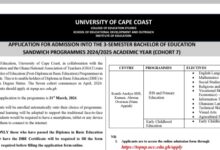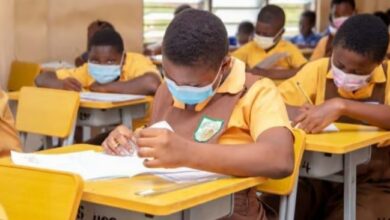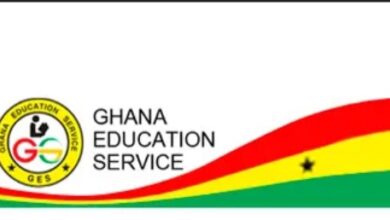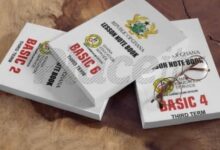Overview || UCC Undergraduate Programmes And Entry Requirements
Here is the overview of the University of Cape Coast (UCC) undergraduate programme and entry requirements for all prospective applicants.
FIELD OF STUDY
Academic programmes of the University are vested in its nine Faculties/Schools organized under five Colleges. These are Faculty of Arts, Faculty of Social Science, School of business, Faculty of Law, School of Agriculture, School of Biological Science, School of Physical Science, School f Medical Science, School of Nursing & Midwifery, School of Allied Health Science, College of Education Studies and College of Distance Education. The Faculties/Schools offer degree, diploma and certificate programmes under the following general nomenclature.
UCC Undergraduate Programmes and Entry Requirements
College of Education Studies
Faculty of Humanities and Social Sciences Education
B.Ed. (Arts)
B.Ed. (Social Science)
B.Ed. (Social Studies)
B.Ed. (Accounting)
B.Ed. (Management)
Faculty of Science and Technology Education
B.Ed. (Science)
B.Ed. (Mathematics)
B.Ed. (Computer Science)
B.Ed. (Health Science)
B.Ed. (Health, Physical Education & Recreation)
B.Ed. (Home Economics)
Faculty of Educational Foundations
B.Ed. (Basic Education)
B.Ed. (Early Childhood Education)
B.Sc. (Psychology)
Diploma in Basic Education
Diploma in Early Childhood
Certificate in Basic Education
Certificate in Early Childhood Education
College of Humanities & Legal Studies
Faculty of Arts
B.A. (African Studies)
B.A. (Varied Fields)
B.A. (Theatre Studies)
Bachelor of Music (B.Mus.)
B.A. (Communication Studies)
B.A. Dance
B.A. Film Studies
Proficiency Course in English for Francophone Students
B.A. (Varied Fields)- According to area of specialization e.g. B.A.(English), B.A. (English and French).
Faculty of Social Science
B.A. (Social Science)
B.A. (Population and Health)
B.Sc. (Hospitality Management)
B.Sc. (Tourism Management)
B.A. (Anthropology)
B.Sc. Geography and Regional Planning)
B.A. (Social Behaviour and Conflict Management)
Diploma in Tourism Management
Diploma in Hospitality Management
Diploma in Labour Studies
Diploma in Social Behaviour and Conflict Management
Diploma in Microfinance
Certificate in Labour Studies
Certificate in Microfinance
School of Business
Bachelor of Commerce (Accounting)
Bachelor of Commerce (Finance)
Bachelor of Commerce (Management)
Bachelor of Commerce (Procurement & Supply Chain Management)
Bachelor of Commerce (Marketing)
Bachelor of Commerce (Human Resources Management)
Faculty of Law
Bachelor of Laws (LLB)
College of Agriculture and Natural Sciences
School of Agriculture
B.Sc. (Agriculture)
B.Sc. (Agricultural Extension)
B.Sc. (Animal Health)
B.Sc. (Agribusiness)
B.Sc. (Agro-Processing)
B.Sc. (Agricultural Extension)
B.Sc. (Agricultural Extension & Community Development)
School of Biological Sciences
B.Sc. (Environmental Science)
B.Sc. (Biochemistry)
B.Sc. (Fisheries & Aquatic Science)
B.Sc. (Forensic Science)
B.Sc. (Molecular Biology and Biotechnology)
B.Sc. (Entomology & Wildlife)
School of Physical Sciences
B.Sc. (Computer Science)
B.Sc. (Engineering Physics)
B.Sc. (Industrial Chemistry)
B.Sc. (Information Technology)
B.Sc. (Laboratory Technology)
B.Sc. (Mathematics)
B.Sc. (Mathematics & Statistic)
B.Sc. (Mathematics with Business)
B.Sc. (Meteorology & Atmospheric Physics)
B.Sc. (Mathematics with Economics)
B.Sc. (Statistics)
B.Sc. (Actuarial Science)
B.Sc. (Chemistry)
B.Sc. (Physics)
B.Sc. (Water & Sanitation)
B.Sc. (Fisheries & Aquatic Science)
Diploma in Water & Sanitation
College of Health and Allied Sciences
School of Medical Sciences
Bachelor of Medicine and Bachelor of Surgery (MBChB)
School of Nursing & Midwifery
B.Sc. (Nursing)
B.Sc. (Mental Health Nursing)
B.Sc. (Community Mental Health Nursing)
School of Allied Health Sciences
B.Sc. (Biomedical Sciences)
B.Sc. (Medical Laboratory Technology)
B.Sc. (Clinical Nutrition & Dietetics)
B.Sc. (Diagnostic Imaging Technology)
B.Sc. (Diagnostic Medical Sonography)
B.Sc. (Health Information Management)
B.Sc. (Physician Assistant Studies)
B.Sc. (Sports and Exercise Science)
Doctor of Optometry
College of Distance Education
Diploma in Basic Education
Diploma in Psychology and Foundations of Education
Diploma in Science and Mathematics Education
Diploma in Commerce
Diploma in Management Studies
B.Ed. (Basic Education)
B.Ed. (Psychology and Foundations of Education)
Bachelor of Commerce
Bachelor of Management Studies
B.Sc. (Marketing)
Students may refer to College or Faculty/School brochures for more information on the various programmes.
Duration of Study
The University of Cape Coast operates a standard four-year undergraduate degree programme based on the successful completion of Senior High School Education. However, students may be admitted directly to the second Year (Level 200) or third Year (Level 300) depending on the assessment and recognition of their prior learning. Moreover, there are other special programmes offered by the University which run up to six years. Sub-degree programmes (Diploma) may, depending on the mode of delivery, run for two to three years. In effect, the University has the following programmes (by duration):
Six- year degree programmes (180- 211 credits)
Four-year degree programmes (120- 141 credits)
Three-year degree programmes (90 – 106 credits)
Two-year post-diploma degree programmes (60- 85 credits)
Three-year diploma programmes (60- 85 credits)
Two-year diploma programmes (60- 85 credits)
One-year certificate programmes (30-36 credits)
Advance Credits for Prior Learning
An Advance Credits is a bulk credit awarded to students admitted to Level 200 or 300 in recognition of their prior learning. The Advance Credit for direct admission to the two levels is 30 and 60 credits respectively. Advance credits will not be included in the computation of C.G.P.A.
Students admitted to Level 200 will normally start their programmes with Level 200 courses and move upwards while those admitted to Level 300 normally start with Level 300 courses and move upwards to Level 400. However, Faculty/Schools and Departments may require such students to take make-up courses at lower levels where necessary.
Admission Requirements
Entry Routes
The University has four entry routes:
Senior Secondary School Certificate Examination (SSSCE), Ghana
West African Seniors School Certificate Examination (WASSCE)
Foreign Qualifications that are internationally acceptable for admission into Universities
Mature Students’ Entrance Examination (Entry at Level 100)
Professional certificates and tertiary level diploma (Entry at Level 200 and 300 depending on the assessment of the diploma or certificate).
The general admission requirements for the various entry routes are as follows:
Post- Senior High School Candidates
Senior Secondary School Certificate Examination (SSSCE)
The candidate must have credit passes (A- D) in six (6) subjects with an overall aggregate of 24 or better. Three of the six subjects must be core subjects (including English Language, Mathematics and either Integrated Science or Social Studies), and three must be in electives relevant to the candidate’s proposed programme of study. In addition, candidate must satisfy the specific requirements of the relevant Faculty.
West African Senior School Certificate Examination (WASSCE)
The candidate must have credits passes (A1- C6) in six (6) subjects with an overall aggregate of 36 or better. Three of the subjects must be core subjects (including English Language, Mathematics and either Integrated Science or Social Studies), and three must be in electives relevant to the candidate’s proposed programme of study. In addition, candidates must satisfy the specific requirements of the relevant Faculty.
General Certificate of Education
Holders of the General Certificate of Education (GCE) Advanced Level (obtained not more than three years before the time of application) must, in addition to credit passes in five (5) GCE ‘O’ Level subjects (including English and Mathematics), have, at least, two (2) passes in the relevant subjects.
General Business Certificate Examinations (GBCE)
Applicants with GBCE results should have credit passes (A-D) in six (6) subjects comprising three (3) core subjects including English Language and Mathematics plus three (3) relevant elective subjects.
International General Certificate of Secondary Education (IGCSE)/ International Baccalaureate (IB)
Holders of the IGCSE/IB must possess at least Grades A */ A-C in English, Mathematics and Biology at the Standard (SL)/’O’ Level, in addition to three Higher Level (HL-A to C)/ ‘A’ Level (A to D)/IB 2 (A to C) grades in the relevant subjects.
Admission through Matured Students’ Entrance Examination.
The candidate must be at least 25 years old by 31st December of the year preceding the examination. A certified copy of birth certificate is required. The date of issue of the birth certificate should not be less than five years from the date of the completion of the admission forms.
The candidate must have G.C.E. “O” Level or SSSCE/WASSCE credit passes in English Language and Core Mathematics.
Candidates who do not have the required “O” Level/SSSCE/WASSCE passes will be required to take Special Entrance Examination papers in the two subjects
The candidate must take the Mature Students’ Entrance Examination which consists of a General Paper for all candidates and an Aptitude Test. Candidates applying for programmes in Education will take an additional paper in Education
Candidates who pass all papers in the Mature Students’ Entrance Examination will be ranked and those who fall within the approved quota will be invited for an interview.
Admission through Matured Students’ Entrance Examination.
The candidate must be at least 25 years old by 31st December of the year preceding the examination. A certified copy of birth certificate is required. The date of issue of the birth certificate should not be less than five years from the date of the completion of the admission forms.
The candidate must have G.C.E. “O” Level or SSSCE/WASSCE credit passes in English Language and Core Mathematics. Candidates who do not have the required “O” Level/SSSCE/WASSCE passes will be required to take Special Entrance Examination papers in the two subjects
The candidate must take the Mature Students’ Entrance Examination which consists of a General Paper for all candidates and an Aptitude Test. Candidates applying for programmes in Education will take an additional paper in Education
Candidates who pass all papers in the Mature Students’ Entrance Examination will be ranked and those who fall within the approved quota will be invited for an interview.
Professional Certificate and Tertiary Level Diploma Holders
The level of placement of professional certificate and tertiary level diploma holders will depend on the assessment of their certificates or diplomas in relation to the programme desired. The general guidelines are as follows:
All professional certificate and tertiary level diploma holders must have either G.C.E. “O” Level credit passes in English Language and Mathematics or SSSCE/WASSCE credit passes in English Language and Core Mathematics
Professional Certificate Holders: The placement level of candidates will depend on assessment of their certificates by the relevant Faculty/School or Department
Holders of UCC (and affiliated institutions) diploma: A minimum of Second-Class Lower is required for admission to level 200 or 300
All 2022 Universities And Colleges Admission Forms – Apply Here
Holders of diplomas awarded by other tertiary institutions: the relevant Faculty/School and Department will assess the curriculum content of the diploma in relation to the programme on a case -by- case basis
HND Candidates: The Level of placement candidates will depend on the match between the content of the diploma and UCC programme. Where there is a good match, a minimum of Second-Class Upper Division is required for admission to level 300. Where the match is not good the candidate is admitted to Level 200.
Foreign Students
In the case of foreign students, their equivalent qualifications may be considered for admission by the relevant Faculty/Schools or Department.
Specific Faculty Admission Requirements
In addition to the general admission requirements Faculties/Schools and Departments may have specific admission requirements.
Join Our Telegram Group For More NTC UPDATES












